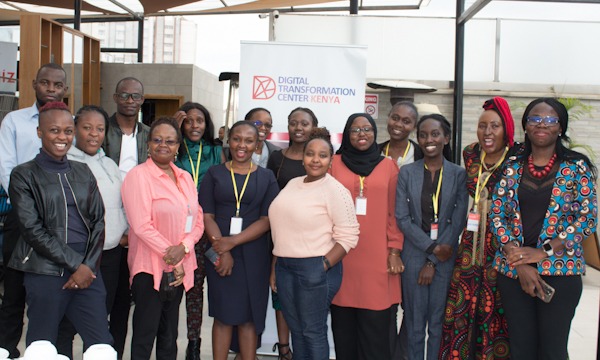Women go online for different things– to access economic opportunities, participate in civic discourse, and socialize– with the hope that the internet is safe for them. But that’s not the case. Online political engagements have been on the rise. Online platforms such as Meta pages serve as alternative media where politicians have used them to issue press releases and stream live campaign events. However, huge differences exist in how women leverage these platforms due to trolling and smear campaigns on their online political platforms.
The Kenya IGF Week kicked off on 27th June with a workshop on Women’s Data Protection and politics. The workshop was part of KICTANets women’s safety strengthening program supported by the German Agency for International Cooperation (GIZ). “With the Kenyan elections just around the corner, this is a season where we see a lot of women, particularly those running for elected posts being targeted and portrayed in a negative light based on their personal data. It is therefore important for us to have a discussion on how to best tackle this situation normally results in a lot of harm for women in our society” Tevin Mwendwa, GIZ Data Protection Advisor
The workshop was guided by the findings and recommendations of a KICTANet policy brief on women’s data protection, presented by Dr. Sylvia Kangara. Through a review of different literature and case laws, the study found out that the Kenya Data Protection Act does not cover personal relationships and therefore makes it difficult for women to get remedies. The complaints process is also not easy for women to start and follow through. The policies ought to have simple mechanisms for ordinary citizens, especially women to report data breaches. Another challenge in the policy implementation is lack of awareness. Citizens still don’t know about the data protection act and its provisions. Those who know, don’t understand how they can use it.
“The American Roe vs Wade judgment exposes some of the challenges women experience online” Dr. Sylvia Kangara. “Period tracker apps can be used to prosecute cases on abortion and women’s private reproductive lives. We must put pressure on ISPs to enhance women’s privacy”
The event was moderated by Rahab Gachango, Kenya’s award-winning content creator. She observes platforms like Twitter are becoming like a warzone where people go online for attention, even if that means making other people feel uncomfortable. “Denying women privacy and safety online is like locking them out of economic and political engagement opportunities.” She says.
Talking about women’s engagement in online political discourses, Nerima Wako, Executive Director at Siasa place observes that there are already noticeable patterns of voter apathy. The percentage of youth voting in the coming elections has sharply declined compared to the 2017 elections. However, this is a contrast to the online reality where young men are the ones managing influential politicians’ accounts. The danger in this is that this gives very few people and sometimes insensitive people huge power to control mass sentiments at a time when the electoral environment is extremely polarised. “The people managing the politician’s accounts are young men talking to very many young men.” Nerima Wako. “ Women politician voices are silenced on the internet as their platforms are filled with a lot of trolling and cyberbullying, usually initiated by their political opponents”
In attendance, were men and women in civic engagement, human rights organizations, women from tech backgrounds, and representatives from social media companies. Dr. Ololade Shyllon gave a presentation on how women can control their data and postings on the Meta platform when engaging their audience.
KICTANet is currently planning another digital security training for women politicians to train them on how to manage their platforms during the current campaign and elections period.




